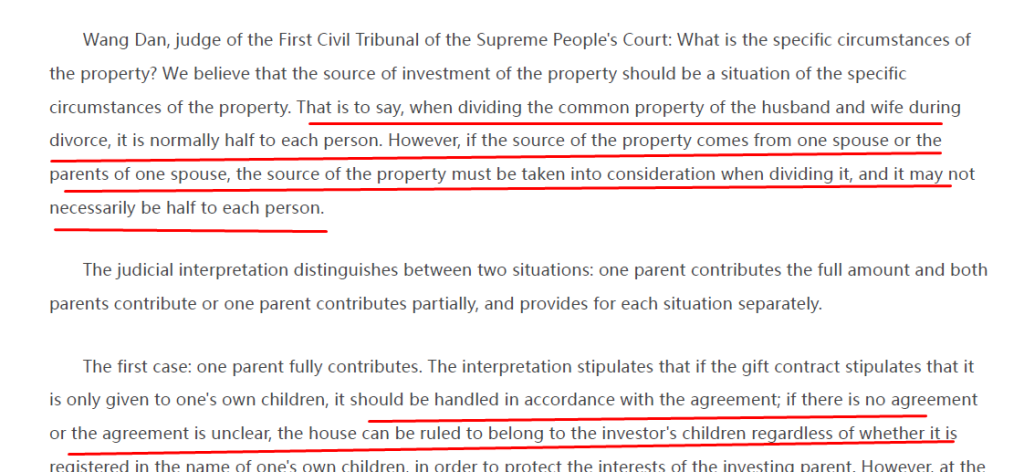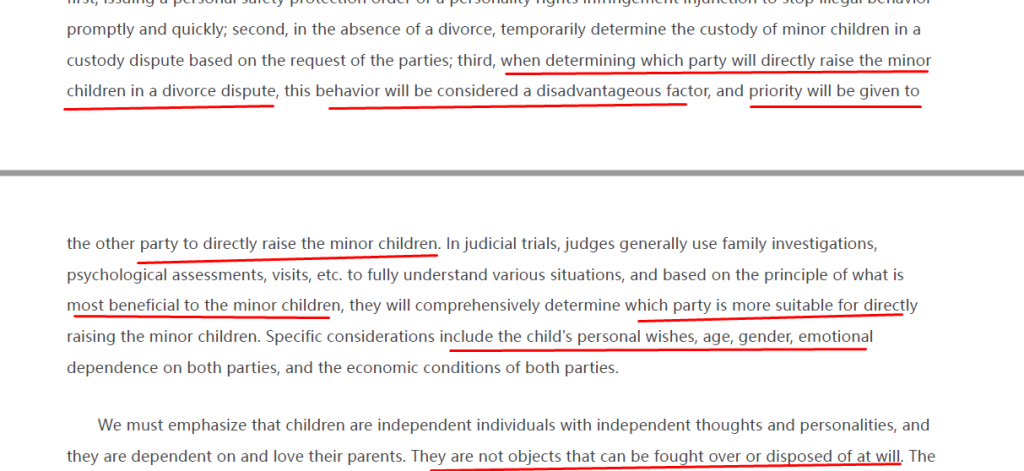In India, there have been numerous instances where wives seek a share in property following a divorce. This has sparked considerable debate in the Indian society. Many men have voiced opinion against such foul practices; a sentiment that can easily be observed on social media platforms like Youtube, Reddit and Facebook.
Such problems of asset division after divorce are not limited to India. Other countries are also reevaluating their legal stance on post-divorce asset division.
One such example is China, which have recently introduced major rules and related to not only assets division but also to children custody.
Wife not automatically entitled to Share in Property After Divorce : China’s Supreme People’s Court
As per the new regulations, a Chinese wife will no longer automatically be entitled to a share in her husband’s property upon divorce, which wasn’t the case earlier.
Earlier, Chinese divorce laws generally ensured that the wife received up to 50% of the marital property, regardless of whether the assets were acquired solely by the husband or through joint contribution.

This was intended to provide financial security to both parties post-divorce. However, the updated provisions mark a notable shift in favor of asset holders.
The reforms come amid rising property disputes following divorce and are widely seen as a response to China’s declining marriage and birth rates.
Officials believe that by removing what many men perceived as a disincentive to marriage—namely, the risk of losing personal or inherited property—the new rules could encourage more people to tie the knot and start families.
One of the key changes includes excluding property acquired solely by the husband—especially property gifted by the groom’s parents to the couple’s child—from division after divorce. Such property will now remain with the husband, and the wife will have no legal claim over it.
However, the law does make room for compensation for the wife and indicates that the portion of compensation will be in proportion to the deservingness of the wife depending on case to case.
Courts may still grant financial compensation to the wife based on the specific circumstances of the divorce, such as the reasons leading to the separation or her contribution to the household.
These legal changes from the Chinese government’s reflect their broader efforts to reform family laws in line with shifting demographics and socio-economic priorities.
The revised legal codes suggest that, in the event of a divorce, the division of property and assets should be determined based on the financial contributions made by each spouse toward their acquisition.
This means that If the property was purchased solely through the husband’s financial resources, the wife will no longer have an automatic claim to it after divorce.
However, if it can be proved that the wife also made financial contributions toward the purchase, the property may be divided between both parties on a case-by-case basis.
Additionally, in instances where the property was acquired with financial support from both sets of parents, the division is likely to be shared between the husband and wife, reflecting joint familial involvement.
Changes also in custody rights of the children
The amendments also address the issue of child custody post-divorce, introducing significant reforms in this area. Under the new provisions, both the husband and the wife are likely to have access to their children after the divorce though the level of access will be decided on case per case basis.

Notably, the court has emphasized that the children themselves will have a considerable say in deciding which parent they wish to live with.
These changes reflect the court’s belief that children deserve the love, care, and protection of both parents, regardless of marital breakdown.
The amendment comes in response to a growing number of divorce cases where one parent has been completely denied access to the child by the other — a situation the court now seeks to correct in the interest of the child’s emotional well-being and balanced upbringing.
Netizens Wishing for Similar Reforms in India
Ever since this news has come on social media, netizens, especially men are wishing for similar post-divorce reforms in their own countries. The majority of Indian men have expressed that their desire to get into marriage may spike if such revolutionary changes can be accomodated in our laws.



